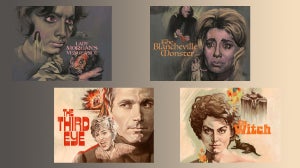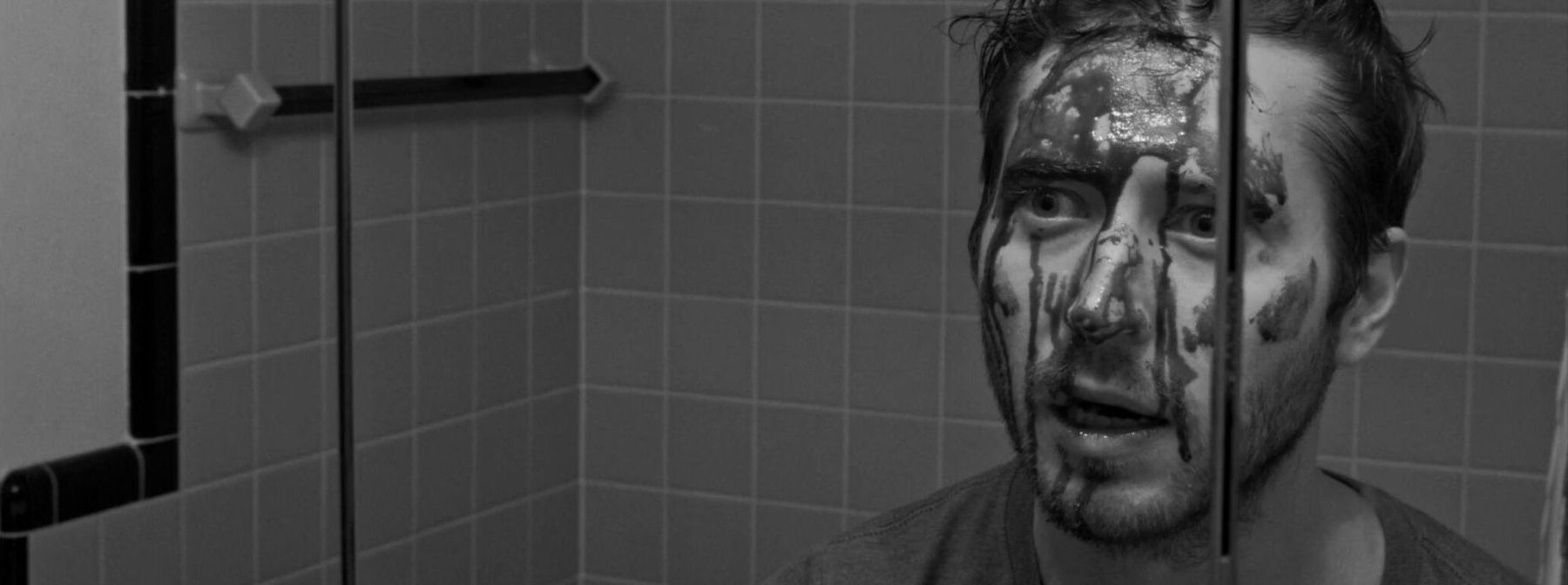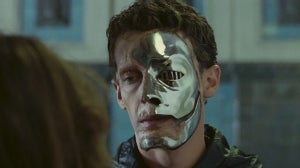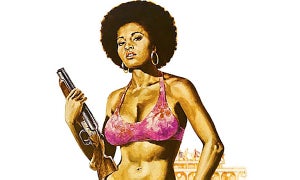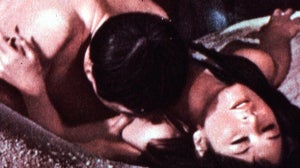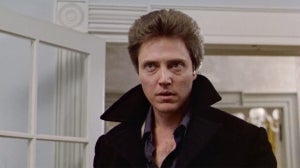
This week saw the release on ARROW of the charming, romantic horror, A Ghost Waits. In the film, a handy-man is asked to fix up a vacant rental home and find out why the tenants keep leaving when he discovers a ghostly presence in the house by the name of Muriel. It turns out the two have a lot in common...pulse notwithstanding. It's a delightfully told story full of heart and we recently caught up with director/writer/producer Adam Stovall to find out more about how the film was made and his experiences in independent film-making.
Did you write with a budget in mind or try to be as free as you could and work with any financial challenges later?
I wrote A Ghost Waits knowing we would have a minimal budget. Fortunately, that’s a muscle I’ve been building for years now. A while back I wrote a script that some people liked and wanted to make, but we couldn’t raise enough money. So I wrote a script with fewer characters and which required fewer locations because those are strong ways to insure your film will cost less. We got fairly close to making that one, but again couldn’t raise enough money. So when I had the idea for A Ghost Waits, I’d already been thinking about the minimum budget with which I could make a movie. I remember saying to MacLeod (Andrews, co-writer, producer and lead actor) one day, “We need actors to play a scene, a location for that scene to happen, and a way to record the scene. Anything else is an indulgence.” And that was pretty much the approach we took to every phase of A Ghost Waits - simplicity, simplicity, simplicity…
How did you decide who to collaborate with? Was it a case of reaching out to people you knew first?
Oh yes, pretty much everyone who worked on the movie was a friend or a friend-of-a-friend. MacLeod and I had been wanting to make a movie together for years, so it starts there: I told him the story and he dug it and we were off to the races. Chenney Chen and Michael Potter have a production company in Cincinnati, and we’ve been friends for a while as well, so I reached out to Chenney very early in the process as well and she brought Mike on to shoot the film. Amanda Miller, who plays Ms Henry, is an actor based in Dayton, OH. I’d seen her in a bunch of short films and she was always the best part of them, so I knew I wanted to work with her. And the ending montage is full of friends who responded to a call I put out on social media asking for people who wanted to be in a haunted house movie.
I didn’t know Natalie (Walker, who plays Muriel) before we shot, though. I’d been following her on Twitter for a while and thought she was hilarious and brilliant, and then one day I remembered that she’s an actor! I reached out and we talked a little and I had a really good feeling about her for Muriel - and then she sent over an audition and she just WAS Muriel. Which was pretty much the case with Sydney Vollmer as well! She auditioned over a video call and it was just immediately clear that she knew the character Rosie much more profoundly than I did. So it was really cool to bring in some folks I’d known for a while and thought they were awesome, and some folks I was just meeting and discovering how awesome they are, and let all of those awesomenesses commingle.
How long did the whole process take from initial idea to wrapping up post-production?
I had the initial idea and started writing the film in November 2015, and we wrapped post-production in October 2020, so all told it took about five years.
What’s the best character trait a first time film-maker could have?
I have been thinking about this question for days. It’s a really good question, but I wasn’t sure it was answerable on its own terms. There are so many traits a first-time filmmaker should have: patience (with yourself and others), adaptability, perseverance, and a staggering amount of confidence, just to name a few. But then one trait in particular started to stand out: Respect.
Respect your collaborators. Respect their time, their decisions, their process. Respect that all of these things go towards making the art that made you excited to work with them in the first place.
Respect your story. Respect that it is bigger than you, and others will need to contribute to it for it to fulfil its potential.
Respect yourself. Respect your instincts that brought these people together in the first place.
Respect your audience. Respect the incredible privilege that is having an audience at all.
You’re going to have to run through a frankly ridiculous number of walls to make your first film. There is no telling how many there will be, and from where they will be coming, but I can tell you that they are coming. And you’re not going to have time, while running through walls, to appreciate the experience of said running. But there will come a time when you will be able to appreciate it, and from everyone else who has run through those walls, I say this to you: Respect.
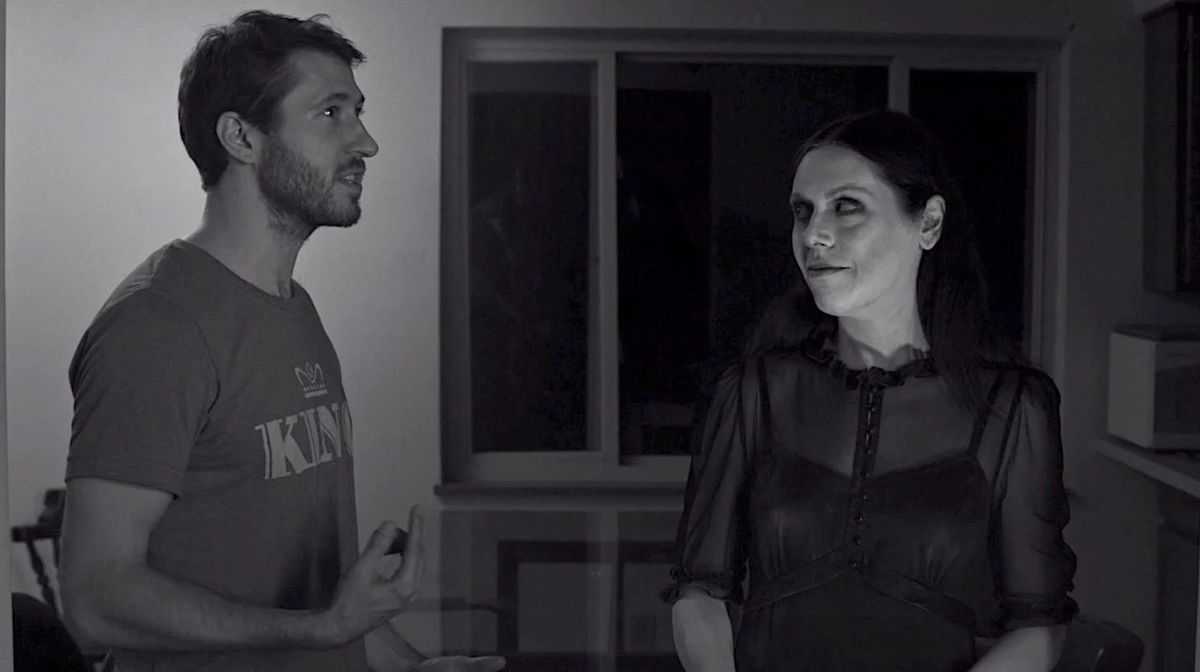
Oh, momentum is crucial! It’s tricky though, because we want so badly to make a movie that we kinda start seeing mirages of momentum. And when it’s real, it can be almost traumatic, because it’s larger than you and you can get swept away by it. But then there will be times when it seems to dissipate completely, and you wonder if this is the end. Because there are so many false-starts and close-calls along the way, you start to expect that. So yeah, you have to capitalise on momentum when it finally arrives, but then you also have to find a way to spark it when it’s low and keep everything on track.
I don’t know that I had moments where it felt like the project wouldn’t be finished, because I felt an obligation to my investors and my collaborators to deliver the project they’d all signed up for. I had moments where I worried that I wasn’t enough to do that, but whenever I felt that MacLeod was usually there to keep us afloat and moving in the right direction. I did have a friend tell me once that he was impressed that I never quit, and I remember saying to him, “I didn’t know that was an option!”
How difficult was it to secure funding? Do you think crowdfunding is the future for new film-makers?In this specific case, raising the funds was pretty easy, but that’s only because we’d tried to raise funds for previous projects and failed every time. I don’t know that crowd-funding will necessarily replace traditional funding, but as access to equipment and means of distribution become more democratised, it makes sense that the same would hold true for means of raising the funds.
Does taking on a number of roles (director, writer, producer etc.) become a necessity for a low-budget feature?I took on so many jobs on this film because I knew that I could afford myself and that I’d be available. I’ve been writing screenplays for about twenty years, so I was confident in my ability to do that. I’ve directed audio books and sketch comedy, and attempted to make a couple of short films, so I felt I had a decent idea of what would be needed from me in that role. If you have collaborators that you trust and that you know care as much as you do about the project, then definitely collaborate with them.
A Ghost Waits was just such a tiny project, I wasn’t comfortable depending on too many people because I quickly came to see how much longer everything would take and how much more complicated everything was than I had initially expected. And since the budget was so small, I felt like I could ask questions when I was stuck in a corner, but I couldn’t afford to bring anyone else into the project. Part of it, really, is recognising what you can and cannot do. I taught myself to edit so that I could edit the movie, because I knew editing would be a prolonged process. I tried to handle color-correction, but I didn’t have a strong handle on that so we brought in Ari Rothschild, who was amazing and gave us a really great deal.
How did you choose the music for A Ghost Waits? Were they bands/musicians you knew prior to working on the film? How easy was it to secure the use of their songs?Music is a very crucial part of cinema to me, the soundtrack loomed very large for me. But I also knew we wouldn’t have much of a music budget, so instead of lamenting that I took it as an opportunity to reach out to people I knew and was pretty sure we’d get a friendly discount. “Years Go By” was always the song that ended the movie, to the extent that I was pretty nervous about that one. I’d met the Bengsons while they were in Cincinnati workshopping their show ‘Hundred Days’ and mentioned the prospect of using their music at some hypothetical point in the future, but the ending as I saw it was so intrinsically tied to that song that I was terrified they’d say no because I didn’t have a backup plan. Outside of them, I’ve known Honeyhoney and Margaret Darling and The Seedy Seeds for years, and I’ve known Wussy for as long as they’ve been a band, so I felt pretty confident asking them for songs, and they were all excited to be a part of the project.
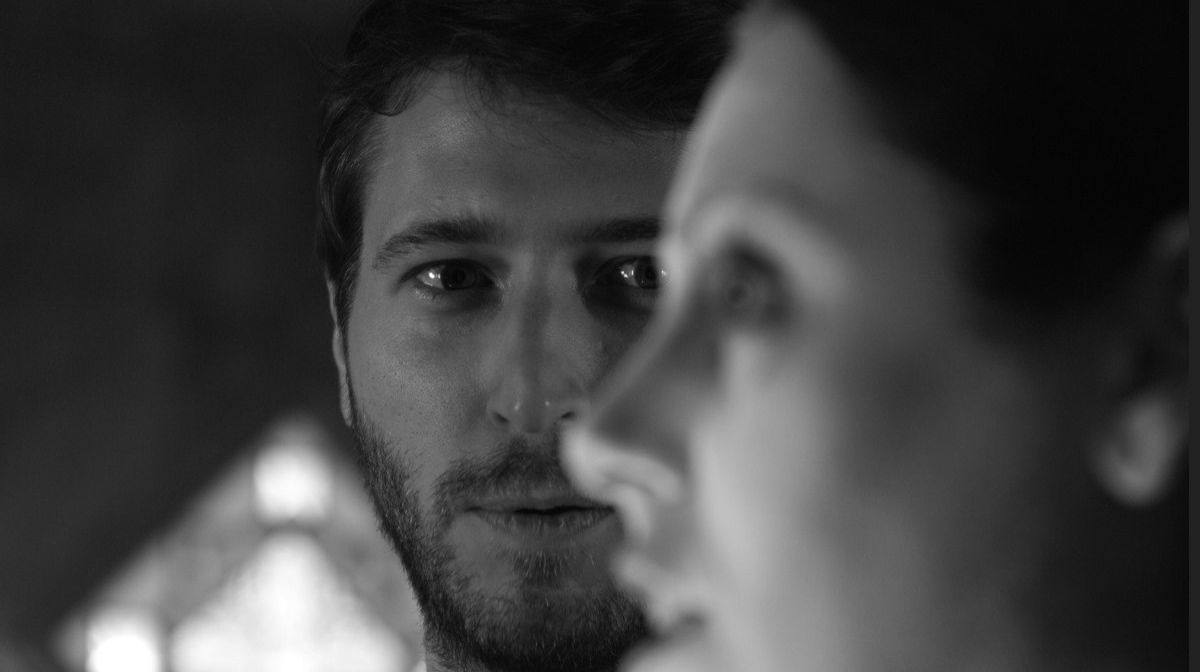
Not really. I mean, we had a temp track that MacLeod and I adored, but we always knew we couldn’t afford it.
The film also has a score which really drives the tension. Did you always have a score in mind or did that come later and how did you choose your two composers?I knew that I wanted some score in the film, but I wouldn’t say I knew what it sounded like. It’s too easy for me to just say “Make it sound like Clint Mansell or Mica Levi,” which is tremendously unhelpful because it kind of shuts off potential roads the composer might want to explore that might be the best possible idea for the film. When you’re bringing a collaborator onto a project, generally it’s because you’re excited about what they do…so how foolish would it be to prevent them from doing the thing that excites you?
As I said before, I’d known Margaret Darling for years, initially as a member of The Seedy Seeds. I always felt like they had a bit of the mathematical approach to music that Radiohead has, in their ability to recognize and explore sonic patterns. So while she’d never composed a score before, I felt like it was at least adjacent to her wheelhouse.
I met Mitch Bain when the film premiered at FrightFest Glasgow. He has a podcast with his friend Andy Stewart called “Strong Language and Violent Scenes” and they invited me on to discuss one of my favourite films, Gremlins 2. We hit it off immediately, and he started sending me bits of music he was working on. One of those really blew my hair back so I shared it with MacLeod. We’d been looking at incorporating some new score into the film, so when MacLeod heard what I sent him he said, “It’s a shame we can’t ask Mitch to write some score for the film!” To which I responded, “Why can’t we?” So we asked him and he said yes before we were finished asking!
Was there anything you learnt in the film-making process that you weren’t expecting?I mean, there’s a million technical things that I didn’t know when I began this process. I taught myself to edit, I learned about lenses and color-correction. My respect for all of the disciplines that go into making a film has grown exponentially. But I think the thing that looms largest from this whole 5-year endeavour is how I’ve changed as a person. I’ve always been curious and empathetic, but I struggled for a long time to feel any self-worth. Going through this process, it forced me to recognise that I am as entitled to a space in this world as anyone else. You make a million decisions when you’re directing a movie, and it was easy for me to defer the fruits of those decisions to my collaborators. But then there came a point where it was just me working on the movie on my laptop in my bedroom, and it requires a lot more mental gymnastics to defer the fruits of those decisions to others. I hope you don’t struggle with a similar thing, but if you do, just know that you’re going to learn how to hack your own brain so that you can get out of your own way and Get Shit Done.
What would be the best piece of advice you could give to somebody looking to make their first film?The glib answer is Don’t. When you’re dreaming of making a movie, it’s very romantic. But then you make the movie and there is no romance, there is no glamour. You wake up, and even though the sun hasn’t risen yet your inbox is already full of decisions you need to make and fires you need to put out. People you love and respect need you to focus on them, and they all need it at the same time. I felt like I was disappointing people constantly. And then you get through all of that, and the footage doesn’t work the way you wanted it to. So you either keep making the movie you’re no longer happy with, or you go back to the drawing board and try to figure out a way to salvage what you have but supplement/complement it with new footage that you’re able to shoot with whatever resources are left at your disposal. But even if you choose the latter option, you have to still make the movie you set out to make in the first place. I mean, every movie is a million different movies along the way, or at least has that potential in the editing room, but you have to remember that you wanted so badly to say something that you marshalled all of this together in the first place, and you can’t just say something else now because it’s been a while. Which I guess is my real advice: Only make a movie if you have something to say. If you just want to make a movie because you like movies, then yeah, my non-glib answer is Don’t.
A Ghost Waits is available to watch on ARROW. You can also take a look at the trailer.
For the latest from Arrow Films, follow us on Instagram, Twitter, Facebook, and YouTube.

Related Articles
